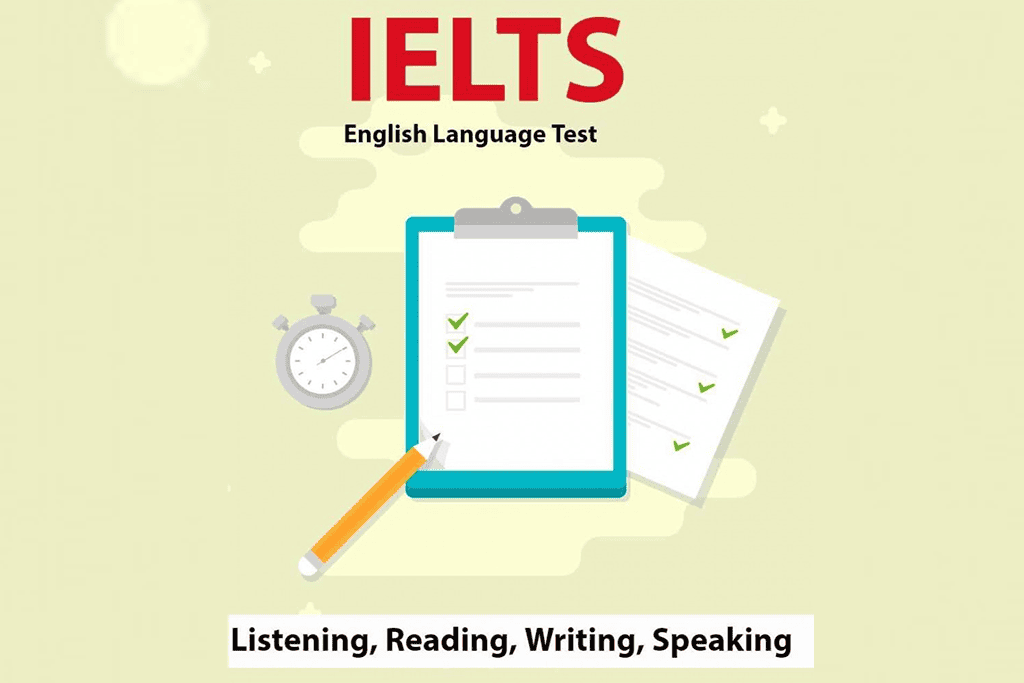
Preparing for the IELTS test is crucial for anyone aiming to achieve their dream of studying or working in an English-speaking country. Success in the IELTS exam can open doors to prestigious institutions and exciting opportunities. However, the journey to a high band score is not just about language proficiency—it’s about strategic preparation and practice.
Many candidates, including native English speakers, find themselves struggling due to insufficient preparation. This highlights the importance of a well-structured study plan, as even a few months of dedicated practice can significantly impact your performance.
In this guide, we’ll walk you through essential steps to effectively prepare for your IELTS test. From understanding the test format and improving key language skills to utilizing the best preparation materials for study and managing your time wisely, our comprehensive approach will ensure you are fully equipped to excel. Follow these steps to transform your preparation and achieve the results you need for your future goals.
Overview of the IELTS Test Format

The IELTS (International English Language Testing System) assesses your English language proficiency through two main types of tests: IELTS General Training and Academic. The General Training test is used for migration and vocational purposes, while the Academic test is for higher education and professional registration.
The IELTS exam is divided into four sections: Listening, Reading, Writing, and Speaking. Each section is designed to evaluate different aspects of your language skills. The Listening section includes recordings of native English speakers, followed by questions. In the Reading section, you will answer questions based on various texts. The Writing section requires you to complete two tasks: describing visual information and writing an essay. The Speaking section involves a face-to-face interview with an examiner.
Different question types appear in each section, such as multiple-choice, matching, and gap-fill questions in Listening, and true/false/not given, matching headings, or summary completion questions in Reading. Writing tasks vary between descriptive and argumentative styles, while the Speaking section includes interviews, discussions, and short speeches.
Additionally, IELTS Life Skills is a specific version of the test designed for visa purposes, focusing on listening and speaking skills.
For a detailed overview of the IELTS test format, including the different sections and question types, visit the IELTS format. This comprehensive guide will help you understand what to expect in the exam.
Improving Specific Skills to prepare yourself for the IELTS exam

Improving specific skills is crucial for effective preparation for the IELTS exam, and focusing on each section—Listening, Reading, Writing, and Speaking—can significantly enhance your overall exam performance.
For the Listening section, understanding the importance of listening tests and practice questions is vital. Regularly practicing with these tests helps you become familiar with the test format and the types of questions you will encounter. To improve your listening skills, engage in active listening by focusing on the main ideas and details in various English audio clips. Developing a shorthand method for note-taking will enable you to quickly jot down key points while listening. Utilizing a variety of sources, such as podcasts, news broadcasts, and audiobooks, can expose you to different accents and vocabulary. Some recommended resources include the IELTS Official Practice Materials, the IELTS Prep App, and websites like TED Talks and BBC Learning English.
When it comes to the Reading section, employing effective strategies can significantly improve your performance. Skimming and scanning techniques allow you to quickly identify main ideas and locate specific information within texts. Familiarizing yourself with common question types, such as true/false/not given and matching headings, can help you tackle them more effectively. Regular practice with IELTS reading passages and reviewing the correct answers will enhance your understanding of the logic behind them. Additionally, learning to identify keywords and understanding the answer sheet format can prevent careless mistakes during the exam.
To excel in the IELTS writing section, focused practice is essential. The exam includes two tasks: Task 1 and Task 2. For the Academic test, Task 1 involves describing visual information such as graphs, charts, or diagrams. For the General Training test, Task 1 requires writing a letter, either formal or informal. Task 2, for both versions, is an essay on a given topic. To perform well, it’s important to practice writing essays, reports, or letters regularly. Organizing your writing with clear paragraphs and topic sentences ensures coherence and clarity. Expanding your vocabulary by learning synonyms and using them appropriately can help avoid repetition. Reviewing high-scoring sample answers can provide insight into what examiners look for, and online tutoring can offer personalized feedback and targeted practice to further improve your skills.
The Speaking section of the IELTS exam requires confidence and fluency. Participating in mock tests and practice interviews can help build your confidence and improve your performance. Focus on fluency rather than accuracy, as clear communication is more important than minor grammatical errors. Providing detailed responses rather than short answers can demonstrate your language proficiency. Engaging with native speakers through language exchange programs or conversation groups can provide practical speaking practice. Online platforms like Cambly or iTalki offer opportunities for regular speaking practice sessions with native speakers.
Global Success: Crafting the Perfect Study Routine for IELTS Excellence

Creating a well-structured study schedule is crucial for achieving success on the IELTS exam. A carefully crafted routine ensures that you cover all necessary topics and sections systematically, leading to better preparation and improved performance. To develop an effective preparation plan, start by assessing your current level of proficiency and identifying areas for improvement. Create a study plan with clear daily, weekly, and monthly goals, and break down study sessions into manageable chunks, focusing on one section or skill at a time. Incorporating regular reviews and adjustments based on progress and practice test results will help you stay on track.
Balancing study time for each section of the exam is essential. Allocate dedicated time for Listening, Reading, Writing, and Speaking, rotating your focus to maintain variety and prevent burnout. This approach helps you develop well-rounded skills and avoid neglecting any section. Regularly practicing with sample answers is also important, as it helps you understand high-scoring responses and refine your techniques.
Utilizing recommended preparation books and online lessons can further enhance your study routine. Books such as “The Official Cambridge Guide to IELTS” and “Barron’s IELTS Superpack” are highly regarded. Online platforms like the British Council and Magoosh offer valuable lessons and practice materials tailored to the IELTS exam. Additionally, integrating preparation apps into your daily routine can provide convenient practice. Apps like the IELTS Prep App, IELTS Test Pro, and Magoosh IELTS Prep offer practice questions, test tips, and progress tracking, making it easier to fit preparation into your schedule.
Finally, practicing IELTS test sample questions and using free practice tests available online can help you gauge your readiness and identify areas for improvement. Websites like the British Council and Cambridge offer free practice materials to ensure you are well-prepared for the actual test. By following these strategies and maintaining a disciplined study routine, you can enhance your preparation and achieve excellence on the IELTS exam.
Strategies for exam preparation

Effective preparation for the IELTS involves several key strategies. Regularly taking practice exams helps you become familiar with the test format, question types, and time constraints. This not only boosts your confidence but also highlights areas needing improvement. Familiarity with the test environment reduces surprises and enhances your performance.
Time management is crucial on exam day. Allocate specific periods for each section and practice managing your time during mock tests. This approach ensures you complete each section within the allotted time and prevents you from spending too long on any single question.
Handling stress and maintaining focus are also essential. Utilize relaxation techniques like deep breathing and mindfulness to manage stress and stay focused. Regular exercise, adequate rest, and a balanced diet leading up to the exam will help keep your mind sharp.
Incorporating these strategies—through practice exams, effective time management, and stress-reduction techniques—can significantly enhance your preparation and performance on the IELTS.
How to Access Free Resources for the IELTS Exam

Using official IELTS preparation materials offers several benefits, including accurate content that mirrors the actual test format and question types, which helps you become familiar with what to expect on test day.
To access free resources from the British Council, they offer a variety of free practice materials, including sample questions and tests, which can help you get used to the exam format.
Finding the right tutoring lessons involves choosing a tutor who understands the IELTS exam format and can provide personalized guidance. Look for tutors with experience in IELTS preparation and positive reviews. Online platforms offer flexible tutoring options, allowing you to receive tailored feedback and support to address your specific needs. This targeted approach can help you improve your skills more effectively.
Prepping for Success: Last-Minute Tips and Checklist for IELTS Exam Day
Here’s a checklist for IELTS exam day preparation:
- Bring your valid ID and any required documents.
- Carry a pencil and eraser; some test centers may allow a pen for specific sections.
- Check what items are permitted in the exam room, such as a clear water bottle.
- Leave behind mobile phones, bags, and electronic devices.
- Arrive early at the test center to allow time for check-in and getting settled.
- Familiarize yourself with how to use the answer sheet and practice marking answers.
- Ensure you have all necessary materials as specified by your test center.
Following this checklist will help you be fully prepared for your IELTS exam day.

FAQs
What is the difference between the IELTS General Training and Academic tests? The IELTS General Training test is designed for migration and vocational purposes, focusing on basic survival skills in social and workplace contexts. The IELTS Academic test is intended for higher education and professional registration, emphasizing more complex language use in academic and professional settings.
How long is the IELTS test? The IELTS test lasts approximately 2 hours and 45 minutes. It is divided into four sections: Listening (30 minutes), Reading (60 minutes), Writing (60 minutes), and Speaking (11-14 minutes).
How is the IELTS Speaking test conducted? The Speaking test is a face-to-face interview with an examiner. It is divided into three parts: an introduction and interview, a long turn where you speak about a topic, and a discussion with the examiner on the topic.
What should I bring to the IELTS exam? On the day of the exam, bring your valid ID (the same one used for registration) and any other documents required by the test center. Ensure that you do not bring prohibited items such as mobile phones, bags, or electronic devices.
How can I improve my IELTS Listening skills? To improve your Listening skills, practice with a variety of English audio materials like podcasts, news broadcasts, and IELTS practice tests. Focus on understanding the main ideas and details, and practice note-taking to capture key points.
What are some effective strategies for the IELTS Reading test? Effective strategies include skimming and scanning texts to find information quickly, practicing with different types of questions such as multiple-choice and matching headings, and understanding how to navigate the answer sheet.
How should I prepare for the IELTS Writing test? Practice writing essays and reports or letters (depending on whether you’re taking the Academic or General Training test). Focus on clear structure, coherence, and expanding your vocabulary. Review sample high-scoring answers and consider seeking feedback from tutors.
What are some tips for the IELTS Speaking test? To succeed in the Speaking test, practice speaking regularly with native speakers or in conversation groups. Work on your fluency and coherence, and try to provide detailed answers rather than short responses.
How can I manage stress on the exam day? Managing stress can be achieved through relaxation techniques such as deep breathing, maintaining a healthy lifestyle with regular exercise and proper rest, and being well-prepared with a clear study plan and checklist for exam day.
Where can I find free IELTS practice materials? Free practice materials are available from the British Council, Cambridge English, and the official IELTS website. These resources include sample questions, practice tests, and other helpful materials to aid in your preparation.
Register as soon as possible
Book your IELTS exam date as soon as possible when you feel you are ready for the test. There may be a limited number of candidates registration available on a particular date, so register as soon as possible. You will need to pay the test fee when you register.
Register for the IELTS Exam and Fees

Effective IELTS preparation involves several key steps. Start by creating a well-structured study plan, balancing your time across the Listening, Reading, Writing, and Speaking sections. Use official practice materials and take practice tests to familiarize yourself with the exam format and improve your performance. Manage your time effectively, practice under test conditions, and employ stress-reduction techniques to stay focused on exam day.
As you approach your test, remember to stay organized, follow your checklist, and be confident in your preparation. Finally, if you need assistance with registration or any other aspects of taking the test, Studygram is here to help guide you through the process. Good luck with your IELTS exam!


